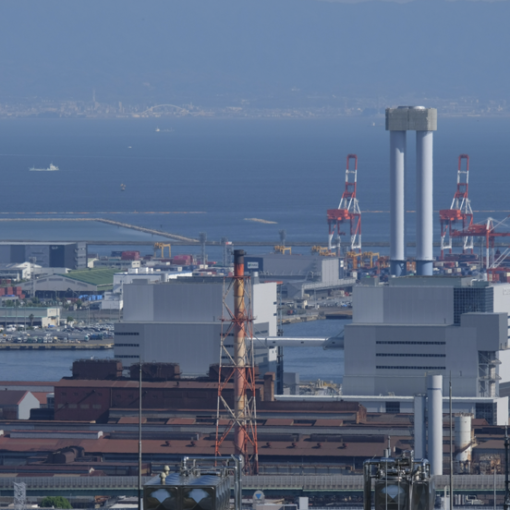By Maria Antonia Tigre & Juan Sebastian Castellanos
In December 2021, the Sabin Center launched the Peer Review Network of Global Climate Litigation (Network), through which practitioners and scholars from the around the world act as “rapporteurs” for their jurisdictions, helping to update and maintain the Global Climate Change Litigation database (see also here and here). In its first year, the Network reviewed, analyzed, and updated multiple cases from the database and helped identify and add new cases from nearly 40 different jurisdictions. However, the work done by the rapporteurs and the discussions that arose from monthly meetings surpassed our expectations, leading to a wide range of outputs covering diverse topics within climate litigation through multiple mediums.
The Network, led by Dr. Maria Antonia Tigre, connects like-minded scholars and practitioners and engages in conversations on the legal arguments and strategies adopted in climate litigation. Through monthly meetings, rapporteurs can share updates on climate litigation in their jurisdictions and discuss common topics of interest, leading to further collaborations and research expansions. This blog post highlights the work done by the Network in 2022 and shares some of the plans for 2023.
Rapporteurs
The size and geographic coverage of the Network has grown enormously over the course of 2022. At the time of the Network’s launch, we had 28 Rapporteurs covering 24 countries; we now have 103 Rapporteurs covering 74 countries and 17 international and regional courts, tribunals or quasi-judicial bodies, as well as United Nations bodies or special procedures. From a regional perspective, the Network’s coverage currently extends to 15 countries in Africa, 15 in the Americas, 30 in Europe, 27 in the Asia-Pacific, and 3 in the Middle East. While we plan to expand the Network further, the diversity of the rapporteurs brings a wide range of conversations that provide for truly comparative perspectives on climate litigation. The detailed representation of countries by region is detailed below:
Climate change litigation keeps growing worldwide, and 2022 was no exception (see some of the highlights from the year here). In 2022, we saw 47 new cases filed in 25 jurisdictions, including first-time jurisdictions such as Finland and Russia. However, our rapporteurs also filled some of the gaps in our database from cases brought in previous years. In total, we added over 150 cases across over 40 jurisdictions. The database now includes over 650 cases worldwide.
Blog Posts and Webinars
Furthering the understanding of climate litigation and the visibility of cases that often fail to reach mainstream media attention, rapporteurs have written blogs discussing new developments in the field, including the filing of new cases that involve innovative arguments and strategies or decisions issued by courts, tribunals, and other quasi-judicial bodies. In 2022, 14 rapporteurs wrote 10 blog posts covering cases and decisions around the world. For example, rapporteurs wrote blogs covering developments in transnational and national climate litigation, as well as making the connection between emerging climate law and potential future litigation.
Eva Balounová (Czech Republic) analyzed the Prague Municipal Court’s decision in Klimatická žaloba ČR v. Czech Republic, where the court ordered the defendants to take specific mitigation measures protecting the right to a favorable environment. Antoine De Spiegeleir (Belgium) and Maria Antonia Tigre exalted the role and importance of the Commission on Human Rights of the Philippines related to the climate accountability and responsibility of Climate Majors after a seven-year inquiry. Katie de Kauwe and Millie John-Pierre (United Kingdom) described the R (Friends of the Earth Ltd and Others) v Secretary of State for Business Energy and Industrial Strategy’s groundbreaking decision by the High Court of England and Wales, which found that the United Kingdom’s plans to cut carbon emissions in the Net Zero Strategy were inadequate and breached national law. A list of all blog posts written by rapporteurs is included below. All litigation-related posts can also be found here.
Our rapporteurs also organized webinars covering a wide range of topics in climate litigation. In 2022, we had four webinars covering two country-specific cases (related to cases in Argentina and Australia) and two cross-cutting issues (on the fair share concept and the role of the Investor-State Dispute Settlement in climate litigation).
UNEP-Sabin Center Annual Conference on Global Climate Litigation
In 2022, together with the United Nations Environment Program (UNEP), we hosted the inaugural UNEP-Sabin Center Annual Conference on Global Climate Litigation, with over 600 participants. The conference included welcome remarks from Patricia Kameri-Mbote (Director of the Law Division at UNEP) and Prof. Michael Gerrard (Sabin Center). The conference included 40 speakers from a wide range of jurisdictions, according to the regional distribution below:
Throughout two days, we heard keynote speeches from five invited speakers, Dr. Joeri Rogelj (Grantham Institute – Climate Change & Environment), Linda Yanti Sulistiawati (National University of Singapore), Prof. Ian Fry (UN Special Rapporteur on the protection and promotion of human rights in the context of climate change), Briony Eales (Asian Development Bank), and Prof. Christina Eckes (University of Amsterdam). Through six panels, we targeted specific subareas within climate litigation, such as climate litigation & human rights, youth-led climate litigation, and private climate litigation. Seeking a truly comparative perspective for each topic, each panel included rapporteurs representing different region of the world, as well as invited judges. The recordings are available here. The second annual conference will be held in April 2023.
Working Groups
Based on the thematic interests of rapporteurs, we also created two working groups on (1) Just Transition Litigation and (2) Private Climate Litigation. The working groups can take different formats and result in a variety of outputs.
The Just Transition Working Group – our pilot project in working groups within the Network – was formed to research the subtopic of just transition litigation, with a particular focus on understanding and addressing the effects of the energy transition on minorities and carbon-dependent communities in the Global South. This subfield of climate litigation now has its own category in the Global Climate Litigation database, with 7 cases identified and added by rapporteurs this year. Rapporteurs in the working group also authored two publications on the topic. A report entitled Just Transition Litigation in Latin America: an initial categorization of climate litigation cases amid the energy transition, was published on January 4, 2023 (written by N. Urzola, M.A. Tigre, L. Zenteno, M. Hesselman, R. Luporini, P. Gaete-Cisterna). Additionally, a chapter entitled Just transition in Latin America: striking a balance between economic development and environmental and social energy justice (N. Urzola, M.A. Tigre, L. Zenteno, M. Hesselman, R. Luporini, P. Gaete-Cisterna) will be published as part of a book collection in late 2023. You can find the abstract here. A webinar launching the report will be held on January 31, 2023. Read more and register here.
The Private Climate Litigation Working Group was formed to understand the concept of private climate litigation and the legal theories that have been advanced so far. The working group will define and map private climate litigation by proposing a typology of legal arguments used in the wide range of cases brought against corporations included in the Sabin’s Center database. The Private Climate Litigation Working Group is still in its early stages, hoping to publish a report before the end of 2023.
Further topics of interest include human rights bodies and climate litigation, climate litigation and vulnerable communities, procedural challenges in climate litigation, climate litigation at international and regional courts and bodies, and climate litigation and adaptation.
Conclusion
The growth of the Network during its first year was overwhelming. We have (i) significantly increased the number of climate cases in the Sabin Center’s Global Climate Litigation Database, especially in the Global South, (ii) established a community of practice in the academic-practitioner interface that can improve knowledge and deepen the understanding of the nature, role, and operation of global climate litigation, (iii) generated a constant flux of information and knowledge exchange on climate litigation through a network of over 100 scholars and practitioners engaged in the field, (iv) produced a series of easily accessible articles and blog posts on global climate litigation that facilitate the understanding of cases and decisions, and (v) organized a series of webinars and a global conference furthering the public-facing debate on climate litigation.
We expect the Network to continue to expand in 2023, widening the reach of our geographical coverage and understanding of the field. If you would like to join the Network and represent one of the jurisdictions not yet covered by the rapporteurs, please fill out this form.
List of blog posts:
Marcin Stoczkiewicz, Guest Commentary: Czech Republic-Poland’s dispute over the Turów mine: Financial implications and lost opportunities for just transition in Poland (Aug. 11, 2022)
Marlies Hesselman, Guest Commentary: A new frontier in (Dutch) climate litigation: greenwashing advertisements on CO2 compensation (Jul. 12, 2022)
Yumeno Grace Nishikawa, Guest Commentary: Climate Litigation in Japan: Citizens’ attempts for the coal phase-out (Jun. 1, 2022)
Pedro Cisterna-Gaete and Maria Antonia Tigre, Guest Commentary: Inter-American Commission on Human Rights’ first resolution on the climate emergency: implications for climate litigation (Apr. 11, 2022)
Riccardo Luporini, Matteo Fermeglia, and Maria Antonia Tigre, Guest Commentary: New Italian constitutional reform: what it means for environmental protection, future generations & climate litigation (Apr. 8, 2022) (republished in Turkish)
Isabela Soares Bicalho, Gabriel Mantelli, Maria Antonia Tigre and Carmem Añon Brasolin, Guest Commentary: Brazil will have first climate litigation trials in the Supreme Court (Mar. 28, 2022)
Muhammed Tawfiq Ladan, Guest Commentary: A Review of Nigeria’s 2021 Climate Change Act: potential for increased climate litigation (Mar. 16, 2022)
Eva Balounová, An Unexpected Success for Czech Climate Litigation (Oct. 18, 2022)
Antoine De Spiegeleir & Maria Antonia Tigre, Guest Commentary: The Role of Human Rights Institutions In Tackling Climate Change: A Case Study of the Philippines (Oct. 5, 2022)
Katie de Kauwe and Millie John-Pierre, Guest Commentary: Legal action in a time of climate crisis
Dr. Maria Antonia Tigre is the Global Climate Litigation Fellow at the Sabin Center for Climate Change Law at Columbia Law School.







